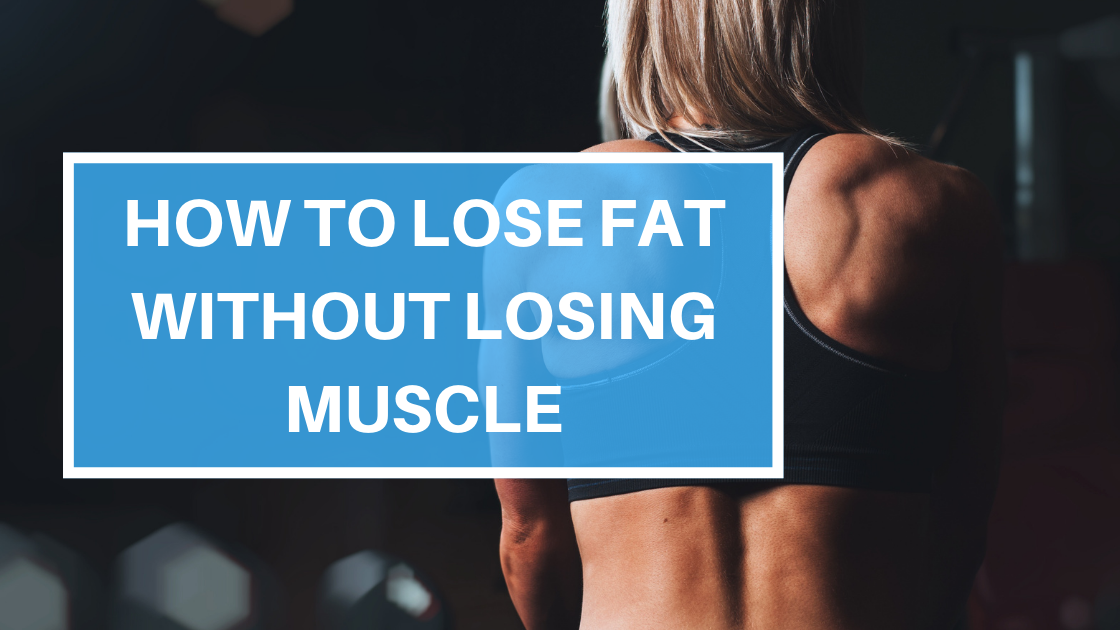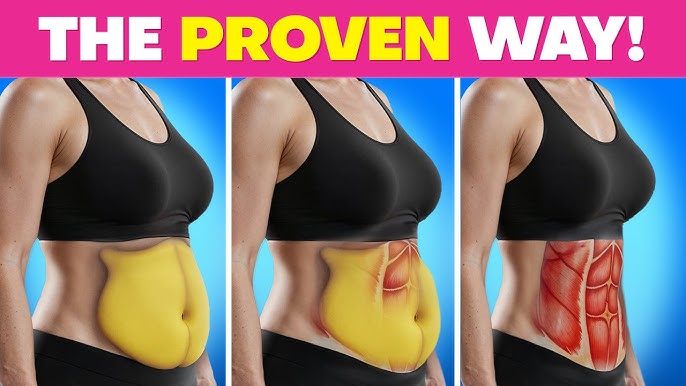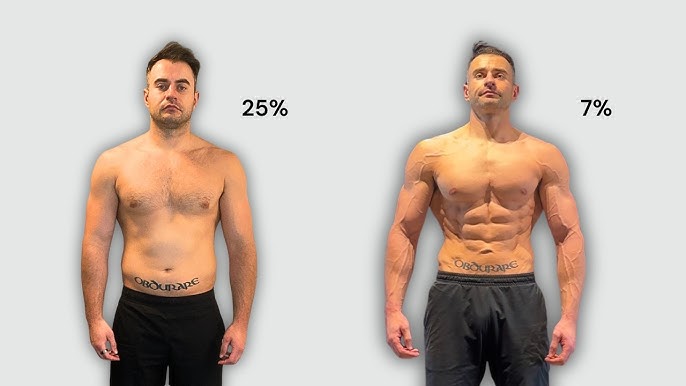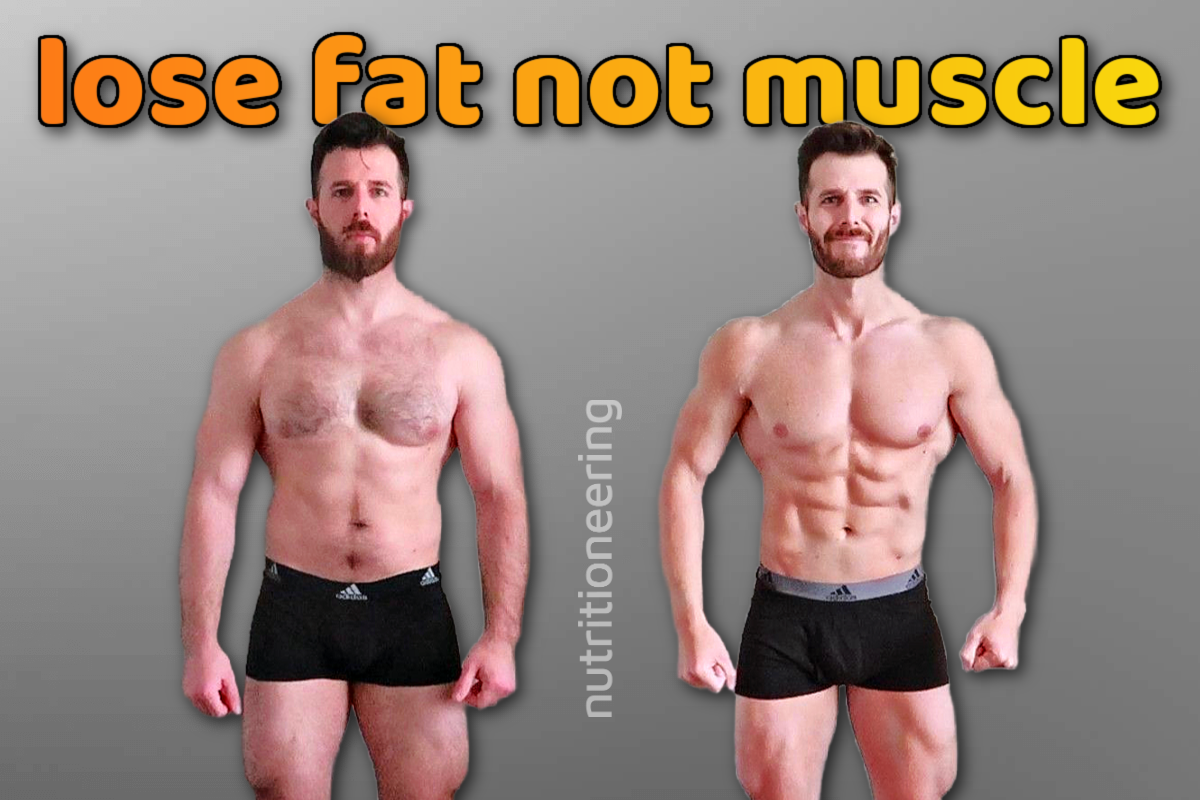Are you worried about losing muscle while trying to shed fat? You’re not alone.
Many people fear that when they slim down, they’ll also lose the hard-earned muscle they worked so hard to build. But what if you could burn fat and keep your muscle intact? Imagine looking leaner and stronger without sacrificing your strength or energy.
You’ll discover how to lose fat without losing muscle, with simple, proven strategies you can start using today. Keep reading to learn the secrets that can help you transform your body the right way.

Balancing Fat Loss And Muscle Retention
Many people want to lose fat without losing muscle. This balance helps keep strength and a healthy look. It takes careful planning of diet and exercise.
Fat loss and muscle retention go hand in hand. You must eat right and train smart to keep your muscles while shedding fat.
Eat Enough Protein
Protein helps build and keep muscle during fat loss. Eating enough protein stops your body from breaking down muscle for energy.
Try to include protein in every meal. Good sources are chicken, fish, beans, and eggs.
- Protein supports muscle repair
- It keeps you full longer
- Aids in maintaining strength
Strength Training Is Key
Lift weights or use resistance bands to keep muscles strong. Strength training signals your body to hold onto muscle.
Include exercises like squats, push-ups, and rows. Train muscles at least two to three times a week.
- Prevents muscle loss
- Boosts metabolism
- Improves body shape
Create A Moderate Calorie Deficit
Eat fewer calories than you burn to lose fat. Avoid cutting calories too much to protect muscle mass.
A small calorie deficit helps you lose fat slowly and keeps muscle strong. Aim for about 500 calories less per day.
Get Enough Rest And Sleep
Rest and sleep help muscles recover and grow. Lack of sleep can cause muscle loss and slow fat loss.
Try to sleep seven to nine hours every night. Take rest days to let your body heal.
Stay Hydrated And Manage Stress
Water supports muscle function and fat loss. Drinking enough water helps your body work well during workouts.
Stress can raise hormones that break down muscle. Find ways to relax, like meditation or light walks.
- Drink at least 8 cups of water daily
- Use stress relief techniques
- Keep muscles healthy and strong
Role Of Nutrition In Preserving Muscle
Losing fat without losing muscle is possible with the right nutrition. Your body needs fuel to keep muscles strong.
Eating the right foods helps protect muscle while cutting fat. Nutrition plays a big role in this balance.
Protein Intake Essentials
Protein is the building block of muscle. Eating enough protein helps keep muscles during fat loss.
Try to eat protein with every meal. This supports muscle repair and growth.
- Aim for 0.7 to 1 gram of protein per pound of body weight
- Include lean meats, fish, eggs, dairy, and plant proteins
- Spread protein intake evenly throughout the day
Calorie Deficit Without Muscle Loss
To lose fat, you need to eat fewer calories than you burn. This is called a calorie deficit.
Keep the deficit small to avoid muscle loss. A slow and steady fat loss protects muscle better.
- Reduce calories by 10-20% from your maintenance level
- Do not cut calories too low or muscles may break down
- Combine calorie control with strength training for best results
Importance Of Nutrient Timing
When you eat matters for muscle preservation. Nutrient timing helps your body use food well.
Eat protein before and after workouts. This supports muscle repair and growth.
- Have a protein-rich meal 1-2 hours before exercise
- Consume protein and carbs within 30 minutes after training
- Space meals every 3-4 hours to keep muscles fueled
Effective Training For Fat Loss And Muscle Maintenance
Losing fat while keeping muscle is possible with the right training. It needs a mix of strength work and smart cardio.
Good recovery also helps your muscles stay strong as you lose fat. Let’s look at how to train effectively.
Strength Training Benefits
Strength training helps keep your muscles during fat loss. It tells your body to hold on to muscle tissue.
It also burns calories and builds strength. This training keeps your body firm as you lose fat.
- Prevents muscle loss while in a calorie deficit
- Increases metabolism to burn more fat
- Improves muscle tone and body shape
- Boosts bone strength and joint health
Incorporating Cardio Wisely
Cardio helps burn extra calories to lose fat. But too much cardio can cause muscle loss.
Choose cardio types and times that support your strength training. Keep cardio sessions short and steady.
- Use low-impact cardio like walking or cycling
- Limit cardio to 20-30 minutes per session
- Do cardio after strength workouts or on rest days
- Try interval training for fat loss and muscle protection
Recovery And Rest Strategies
Rest is key to keep muscles strong during fat loss. Muscles grow and repair when you rest.
Good sleep and recovery reduce injury risks. They help you train harder and keep muscle.
- Get 7-9 hours of sleep each night
- Take rest days between intense workouts
- Use stretching or light activity to aid recovery
- Eat enough protein to support muscle repair

Supplements That Support Muscle During Fat Loss
Losing fat while keeping muscle is a common goal. Supplements can help protect muscle during fat loss.
Choosing the right supplements supports strength and muscle repair. This helps you stay strong as you lose fat.
Protein Supplements
Protein supplements provide the building blocks muscles need. They help repair and grow muscle tissue after workouts.
Using protein powder makes it easier to meet daily protein goals. This supports muscle maintenance during calorie loss.
- Whey protein is quickly absorbed and rich in amino acids.
- Casein protein digests slowly, feeding muscles over time.
- Plant-based proteins are good for those avoiding dairy.
Branched-chain Amino Acids (bcaas)
BCAAs include leucine, isoleucine, and valine. These amino acids help reduce muscle breakdown during fat loss.
Taking BCAAs before or after exercise supports muscle recovery. They may also reduce fatigue during workouts.
- Leucine triggers muscle protein synthesis.
- Isoleucine helps with energy and repair.
- Valine supports muscle endurance.
Creatine And Other Aids
Creatine helps muscles store energy for short, intense efforts. It boosts strength and power during workouts.
Other aids like beta-alanine and HMB may protect muscle. They help reduce muscle fatigue and breakdown.
- Creatine increases muscle energy and strength.
- Beta-alanine delays muscle fatigue.
- HMB reduces muscle damage during calorie loss.
Common Mistakes That Cause Muscle Loss
Losing fat without losing muscle is a common goal. Many people make mistakes that cause muscle loss. Understanding these errors helps keep muscle while shedding fat.
Muscle loss slows metabolism and makes it harder to stay fit. Avoiding common mistakes supports better body composition.
Excessive Calorie Cutting
Cutting too many calories can cause your body to break down muscle for energy. A big calorie deficit stresses the body and slows metabolism.
Eating too little reduces protein availability needed for muscle repair and growth. This leads to muscle loss over time.
- Keep calorie cuts moderate, not extreme
- Eat enough protein daily to support muscles
- Avoid very low-calorie diets for long periods
Neglecting Resistance Training
Skipping resistance training signals your body to lose muscle. Without stress on muscles, your body thinks it does not need to keep them.
Resistance training keeps muscles strong and helps burn fat. It is essential during fat loss to maintain muscle mass.
- Include weight lifting or bodyweight exercises
- Train major muscle groups at least twice a week
- Progressively increase workout intensity over time
Ignoring Recovery Needs
Not resting enough causes muscle breakdown. Recovery helps muscles rebuild and grow stronger after workouts.
Poor sleep and high stress also harm muscle maintenance. Your body needs time and rest to stay healthy during fat loss.
- Get 7-9 hours of sleep each night
- Take rest days between intense workouts
- Manage stress with relaxation techniques

Tracking Progress And Adjusting Strategies
Losing fat without losing muscle needs careful tracking. You must see how your body changes over time. This helps you keep muscle while burning fat.
Adjusting your plan is key. If you lose muscle, change your workout or diet. Tracking helps you find the right balance.
Measuring Body Composition
Body weight alone does not show fat or muscle changes. Measuring body composition is better. It shows how much fat and muscle you have.
You can use tools like skinfold calipers, bioelectrical impedance, or DEXA scans. These methods give a clearer picture of your progress.
- Track fat loss and muscle gain separately
- Use the same method each time for accuracy
- Measure every 2 to 4 weeks for progress
Adapting Workouts And Diet
Adjust workouts to keep muscle. Include strength training and avoid too much cardio. This helps preserve muscle while losing fat.
Change your diet if needed. Eat enough protein to support muscles. Reduce calories slowly to avoid muscle loss.
- Increase protein intake to about 1.6-2.2 grams per kg
- Do weight training 3-4 times per week
- Cut calories by 10-20% for fat loss
Listening To Your Body
Pay attention to how your body feels. Muscle soreness, energy levels, and mood show if your plan works. Overtraining can cause muscle loss.
Rest and recovery are important. If you feel very tired or weak, take a break or eat more. This keeps your muscles strong during fat loss.
- Watch for excessive fatigue or weakness
- Take rest days to help muscles recover
- Adjust food and exercise if you feel bad
Frequently Asked Questions
Can You Lose Fat Without Losing Muscle Mass?
Yes, you can lose fat without muscle loss. Focus on a high-protein diet and strength training. Maintain a moderate calorie deficit and avoid extreme dieting for best results.
What Role Does Protein Play In Preserving Muscle?
Protein supports muscle repair and growth during fat loss. Consuming enough protein prevents muscle breakdown while dieting. Aim for 1. 2-2. 2 grams per kilogram of body weight daily.
How Important Is Strength Training During Fat Loss?
Strength training is crucial to preserve muscle when losing fat. It stimulates muscle maintenance and growth. Regular resistance exercises help retain muscle strength and shape.
Can Cardio Cause Muscle Loss During Fat Loss?
Excessive cardio without strength training may cause muscle loss. Balance cardio with resistance workouts and proper nutrition to protect muscle mass while burning fat.
Conclusion
Losing fat while keeping muscle is possible. Focus on balanced nutrition. Include enough protein in your meals. Engage in regular strength training exercises. Stay consistent with your routine. Track your progress carefully. Make adjustments as needed. Listen to your body’s signals.
Rest and recovery are vital. Stay motivated and set clear goals. Celebrate small victories along the way. With dedication and the right approach, you can achieve your desired results. Remember, patience is key. Keep pushing forward. Your efforts will pay off in time.
Stay committed to your journey for the best outcome.



